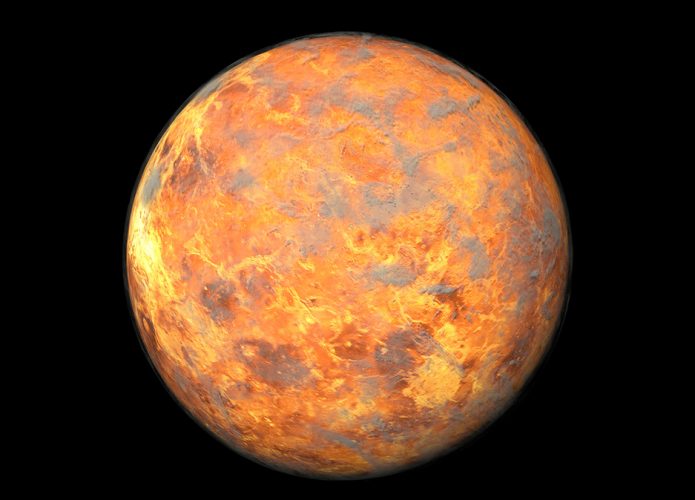For decades, astronomers have speculated about the possibility of life lurking in Venus' clouds, which might explain its unusual chemical composition. Although many studies dispute this hypothesis, every now and then a new approach appears to defend this thesis.
This is the case of an experiment conducted by the Massachusetts Institute of Technology (MIT) and published this month in the journal AstrobiologyWhich revealed that amino acids, the building blocks of life as we know it, can persist in acidic solutions similar to those found in pink clouds.
Although Venus is often considered an inhospitable environment, with its scorching temperatures and clouds of sulfuric acid, scientists believe simple life forms could survive these extreme conditions. The clouds of Venus, cooler than the planet's surface, may provide refuge for these creatures.
The MIT experiment dipped 20 amino acids into a solution that mimicked the cloud environment of Venus. Surprisingly, 19 of them remained intact for at least a month despite the highly acidic environment.
Sarah Seager, an astrophysicist at the Massachusetts Institute of Technology and one of the study's authors, confirmed in an article statement This does not mean that life on Venus will be identical to life on Earth, but rather it means that pink clouds can provide the appropriate conditions for the emergence of complex molecules necessary for life.
This discovery challenges the idea that sulfuric acid is universally hostile to organic chemistry, opening up the possibility of life in extreme environments.
The study also revealed that nine of the 20 amino acids tested are present in meteorites, suggesting that these molecules could have reached Venus via space rock collisions.
Read more:
The Life Finder on Venus will analyze organic compounds found in the planet's atmosphere
In January 2025, a special space mission made contact Discoverer of the life of Venus (Venus Life Locator) will be launched by the Massachusetts Institute of Technology (MIT) in partnership with Rocket Lab, with the aim of continuing to explore the possibility of life on the second planet closest to the sun. This mission will send a probe called Photon to analyze organic compounds in the atmosphere of Venus, providing data on… The habitability of the planet.

The results of the MIT experiment add further evidence of the growing potential for life on Venus, providing hope for scientists seeking to uncover the secrets of our planetary neighborhood.
Although Venus is often called Earth's “twin” due to its similar size and composition, conditions on its surface are extremely hostile. Temperatures there can reach nearly 500 degrees Celsius, and its atmosphere is composed mostly of carbon dioxide, with thick clouds of sulfuric acid.
The discovery of stable amino acids in these difficult conditions raises fascinating questions about the origin of life and the habitability of the solar system and beyond. Scientists are eager to continue investigating and exploring the mysteries of Venus, one of the most mysterious planets in our cosmic neighborhood.

“Incurable thinker. Food aficionado. Subtly charming alcohol scholar. Pop culture advocate.”






More Stories
NASA Releases Selfie of Perseverance Rover Working on Mars
NVIDIA driver includes hidden Final Fantasy XVI profile
PlayStation Plus Extra and Premium saw a significant drop in players in July